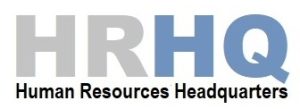by Lou Adler, CEO and founder of The Adler Group
Well Professor Todd Rose, the author of The End of Average, doesn’t actually blast behavioral interviewing, the use of statistics, assessment tests and job descriptions – he just diplomatically suggests they’re misguided, ineffective and counterproductive.
But as someone (me) who thinks behavioral interviewing is anti-behavior, assessment tests exclude the best people, statistics can’t be used to design six sigma business processes and that job descriptions should be illegal, I think blast is far too timid a word. Exterminate would be better. The more important point, though, is that Prof. Rose proved that current hiring practices should be exterminated for all of the reasons cited.
Now to set the record straight, Prof. Rose did talk to me last year to get my opinion about all of these issues and actually included a nice reference to Performance-based Hiring in his book. He even went so far as to suggest that Performance-based Hiring eliminates most of the flaws described above. In our conversations he wondered how I came to some of the same conclusions he did which are based on real science. I told him I used fake science. This consisted of a small sample of repeatable experiments in the 1980s that demonstrated the following:
- The best people aren’t willing to take lateral transfers. They want jobs that stretch them in the short term and offer significant upside potential in the long term. More important, if this condition exists, compensation is less important. This was true in the mid-70s when I started hiring top people and it’s still true today. That’s why this concept must be the cardinal rule underlying all hiring strategies and one that’s broken every day at most companies.
- Skills and experience-based job descriptions are terrible for screening purposes and worse for attracting top performers. As a result I asked hiring managers to define jobs as a series of performance objectives. I then asked them if they’d see people who could do this work if they had a different mix of skills and experiences. All of the best managers agreed. The average managers didn’t. When the best managers compared the candidates who could do the work to those who had the skills it was clear the best people had something different to offer: more ability, more insight, more confidence and more potential.
- Performance of even the best people is very situational. Over the years as I tracked these people it was clear that those who were hired based on their performance and potential were promoted more frequently and stayed longer than those who were hired based on their skills and experiences. However, the circumstances of the job represented the tipping point between great success and underperformance Most important was how the hiring manager and new hire worked together. Second were the team issues and third had to do with cultural fit. A mismatch on any of these, regardless of how competent the person was, adversely impacted performance.
- Psychometric assessment tests don’t predict ability or fit. I’ve been tracking people for 30 years and the conclusion I developed in the first five years was that, at best, assessment tests confirm ability but don’t predict it. Worse, there were so many false negatives (good people being excluded) and false positives (weak people being considered) that the tests were so flawed they should never be used for screening. Of course, Time magazine had a recent cover story advocating their use which suggests their value is way overhyped.
- Behavioral interviewing and competency models do not improve quality of hire. In fact Schmidt and Hunter’s academic research over the past 30 years clearly demonstrates that behavioral interviewing, which is based on assessing competencies, is only 12% superior to flipping a coin. That’s why I concluded early on that you can’t build a scalable and repeatable business process based on statistics unless there are very strong correlations between the factors being assessed and on-the-job performance.
In The End of Average, Prof. Rose uses examples based on real science to validate each of these points. Regardless, the bigger point Rose makes is that no one is average and in order to maximize the potential of the individual, context matters. The situation matters. The resources matter. The culture matters. The manager matters. The team matters. And the focus of the job matters. That’s why you need to define all of these things ahead of time and find people who can excel at most of them. Most important, stop screening people on things that don’t matter – their level of skills, their years of experience, their GPA, their behaviors and their competencies. In my mind, for those companies that embrace The End of Average it will be The Beginning of Hiring Great Talent.
Permission has been granted from The Adler Group and Lou Adler, author of Hire With Your Head and The Essential Guide to Hiring & Getting Hired, to reprint this article.
About the author
Lou Adler is the CEO and founder of The Adler Group – a training and search firm helping companies implement Performance-based Hiring℠. Adler is the author of the Amazon top-10 best-seller, Hire With Your Head (John Wiley & Sons, 3rd Edition, 2007). His most recent book has just been published, The Essential Guide for Hiring & Getting Hired (Workbench, 2013). He is also the author of the award-winning Nightingale-Conant audio program, Talent Rules! Using Performance-based Hiring to Build Great Teams (2007). Adler holds an MBA from the University of California in Los Angeles and a BS in Mechanical Engineering from Clarkson University in New York.











